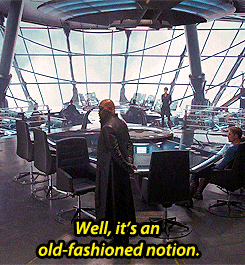Ever since Canada declared that it would phase out the penny from its economic system a few years ago, there has been talk about why the United States hasn’t done the same thing. When presented with the facts that it would be more economically favorable as minting the penny costs millions of dollars per year, the majority people’s money is digital, and that most people can’t remember the last time they actually handed a cashier a penny, there is little logical sense as to why they don’t get rid of it. However, I believe the penny presents a great analogy for something that I think we should all strive to think about a little more: are we really making as much progress as we think we are, both socially and technologically?
Before continuing I’d like to clarify that I think we have made enormous leaps from where we were not even 50 years ago in terms of being accepting of people, cultures, and beliefs, and there is no doubt that we will continue to take strides in the right direction. That is not what is in question here, but rather if we have lost something along the way.
When looking back through history today we are often given a very biased lens which only points out the worst parts of it. It can be argued that it is because those are usually the parts that later went on to cause and define the major shifts in the directions that progress was made, but truthfully the reason why those are the points of focus is because they are the ones that grab the attention and help to sell the books better. The side of history that is often overlooked, and as such has been slowly phased out of our society, is the cultural code that guided most interactions in the many different societies of our past. For example, there is a common misconception that chivalry has to do with men being courteous to women, and while that is a small part of it, what most people don’t know is that chivalry was the code of conduct for knights in medieval times, both on and off the battlefield. This misconception arises from a lack of understanding of the less gory parts of history.
Coming back to the penny analogy, there are many concepts that, like the removal of the penny, make logical sense but should not happen for a more (for lack of a better word) emotional reason. There was a time when you could actually buy things with individual pennies, and higher money values held a more substantial impact. It may not be the only one, or maybe not even one at all, but a reason to not get rid of the penny is to retain an ideological hope that one day we might return to a system where the penny once again holds strength. This hope represents what I mean about losing things along the way in our progress. Credit and other forms of digital wealth are incredibly convenient, but they discourage the use of physical currency and cause systemic changes in terms of what people value. Dollar bills still have a certain level of respect, and when you receive some it always brings excitement, but not nearly as much as when that was your only way of getting anything you wanted from a store. Not only that, but it also adds another potential source of worry to your life as there is the constant threat of someone really good with a computer gaining access to your account and leaving you with nothing. In making a shift away from the physical currencies, we have made our lives more convenient, but have also lost some of the sense of the true value of money and have created more stress in our lives.
That example, while accurate, is slightly overdramatic as most people would argue that they are not constantly stressed about the fact that their bank accounts could get hacked. There is, however, a more concerning example which I have observed happening more than once since moving to a college campus. In the era before cell phones, if you were having a conversation with someone it was not only normal to hold some form of conscious contact (such as eye) but it was actually considered outright offensive if your attention was elsewhere. Now, if I look around while in a group of people talking, half are on their phones or doing something else. No effort is made to even appear like you’re interested, and because of that when the people that are paying attention start to laugh or something like that there is a chorus of “what? Can you repeat that I couldn’t hear it?” With technological advances providing us with a constant onslaught of information or alternative attention grabbers, the sanctity of the conversation is basically nonexistent.
Another example which has come as a bi-product of the individuality movements, in particular those which empower people who have been oppressed (women and racial minorities primarily) is a sense of “I don’t need them!” Them could be anyone, but in particular, speaks more toward those individuals who have had a lucky upbringing, was born with the “right” genes, or those who have succeeded in their substantially bettering their lives. While it is important to retain pride and make sure that you are confident in your own abilities and self-worth, it is also imperative that you keep yourself realistic. There have been many cases in my personal experience where I offered my assistance to someone and they have turned me down saying something very close to, “It’s fine, I got this.” No one doubts that you can do it, but when there is someone who could potentially do it better, or would help you do whatever you are doing more efficiently, there is no harm in taking the help. Pride has turned many people into rude individuals who reject others’ kindness, which has in turn made many people turn cynical and bitter. The concept of giving and receiving help has been warped by modern concepts of progress, and along the way we have lost an integral part of human-to human interaction.
There are countless other examples of things that used to be commonplace, unspoken guidelines of social conduct in years past that have been lost in today’s more “advanced world” and while I do still believe that we have made forward progress there are certain things that we should make a more conscious effort to bring back.






















